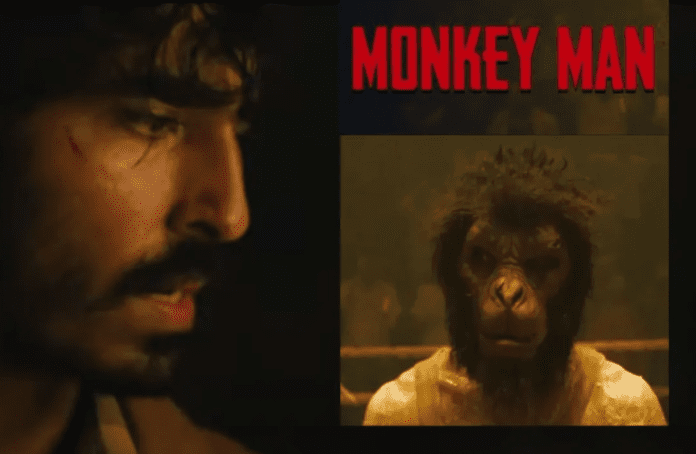Monkey Man Unveiled, Dev Patel’s Directorial Debut in Cinematic Layers.
3 min read 2024-01-27, 09:40 PM IST
Summary
|

Monkey Man.” Initially, I was indifferent, but as the trailer unfolded, it became clear that this was not an ordinary preview. The film, directed by Dev Patel in his directorial debut, took unexpected turns and left me contemplating.
The trailer opens with Dev Patel lying amidst a crowd, set in what seems to be a slum-type environment. While the initial scenes appeared to perpetuate stereotypes, the tone shifted gradually, prompting me to reconsider my expectations. Beyond the cliches, the trailer hinted at a deeper narrative, exploring the bond between a mother and son.
ALSO READ| Fighter Film Banned in Gulf Countries.
Dev Patel’s character, Devu, goes through a transformative journey, and as the trailer progresses, it becomes evident that the story delves into themes beyond the superficial portrayal of poverty. The film seems to revolve around a revenge plot, with Devu seeking vengeance for past injustices, particularly against a character played by Sikander Kher, portraying a policeman named Desh Pandey.
The intriguing aspect is the connection to the theme of Bajrang Bali (Hanuman), as the trailer features a painting of Hanuman cutting his chest. This religious motif adds layers to the narrative, drawing parallels between the mother-son bond, revenge, and the symbolism of Hanuman.
As the trailer unfolds, we learn about a politician, played by Makarand Pandey, who had a hand in the devastation of Devu’s village. The antagonist, referred to as “the demon,” is portrayed by Pandey, embodying the character of Ravana. The trailer cleverly uses metaphors, such as scenes reminiscent of Lanka Dahan from the Ramayana, to convey the depth of the narrative.
ALSO READ| Rhea Chakraborty Shares Throwback Photo on Sushant Singh Rajput’s Birthday.
Dev Patel’s character embarks on a journey of revenge, seemingly against insurmountable odds. The trailer showcases his resilience and determination, presenting him as a one-man army ready to confront the forces that destroyed his village.
The Kings Club, a significant establishment in the film, serves as a backdrop for Dev Patel’s character’s struggle for upward mobility. The scenes in the club depict his climb from the ground up, highlighting themes of social status and perseverance.
One noteworthy element is the presence of Jordan Peele as a producer, adding a layer of anticipation for what the film might offer. The trailer leaves some questions unanswered, suggesting that there may be hidden facets to the plot yet to be revealed.
While the use of “white monkey” instead of directly referencing Bajrang Bali may raise eyebrows, it leaves room for speculation about potential twists in the movie. The representation and cultural impact of the film will undoubtedly be scrutinized, especially given Wood’s emphasis on these aspects.
In conclusion, “Monkey Man” appears to be more than just a revenge story; it intertwines familial bonds, cultural symbolism, and social commentary. Dev Patel’s directorial debut promises a cinematic experience that goes beyond the surface, inviting audiences to explore the intricacies of its narrative. The trailer serves as a tantalizing glimpse into a film that may unfold with surprises and deeper layers yet to be unveiled.

